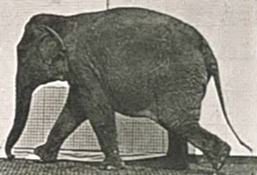2145 Tue 21 Feb 2017
LESSONS
BJP was, is and will continue to distort,rig,tamper the EVM to win elections to have their permanent Ache din.
https://www.youtube.com/watch?v=Vjl3DrhoWa8&t=7s
खबरदार चुनाव जीतने के लिए भाजपा EVM से छेड़छाड़ कर सकती है | BJP may distort EMV to win election
now with just 20 constituencies out of 403 constituencies the EVMs have been replaced with VVPAT
Once the BJP had referred the media as PRESSTITUTES while Napolean said
“I can face two battalions but not two scribes. After taking heavy
bribes form Modi, they support him. Otherwise he would send his IT teams
for the ride.
Apart from that, what may put the BJP at
disadvantage now is that the RSSised party has not projected any chief
ministerial candidate for the elections and has built its campaign
around Modi though majority seats were distributed to RSS cadres.The
voters have switched their loyalties in the present political scenario.
Moreover, DEMONetisation puts the BJP’s prospects in dark as one cannot
deny the fact that the people indeed faced problems post the November 8
decision to DEMONetise high-value currency. In addition, the BJP’s loss
at the hands of Nitish Kumar-led grand alliance in Bihar may also not go
in favour of the RSSised party in Uttar Pradesh as a section of the
voters here claim that the fight here is about development and not
RSSisation. Moreover, Mulayam and Congress president Sonia Gandhi
missing from the political scene may also benefit the BSP as traditional
voters may not impose their trust on the newly-formed alliance. What’s
more interesting is that the Samajwadi-Congress alliance and the BJP
have traded charges at each other in most of the election rallies and
not kept their focus on the BSP. This latest war of words between the
two camps may also go in Mayawati’s favour.
is not just Bahenji Mayawati but for the Sarvajan Samaj i.e., for all
societies she is Mother Maha mayawati of Prabuddha Bharath
2.Blood
pressure of Jathi Familywadi Parties (JFP) BJP,SP,Cong leaders has
risen sharply. By the time the elections get over, they will be
hospitalised.
3. After showing Achhe Din to the people, Modi is acting like Gabbar
Singh of Sholay and says he wants to fight corruption and turned your
hard earned money into paper. Now people will take revenge.
4. At Lucknow take a ride with Akhilesh’s “Kaam Bolta Hai” (Work Speaks) on the metro. Let’s see
if it runs.
5. Thrown out out trash, Modi took the tainted leaders into the BJP.
6.Modi Congress ke logon se kehta hai: jabaan sambhaal kar rakho, warna
mere paas aapki poori janampatri padi hui hai(hold your tongue, I have
your entire horoscope).
7.For over past two years…Modi did not take out the janmapatri of Congress and gone ahead with it.
8. Rahul is the most joked about person on Google.
9.Modi likes to search Google and he does so in his past time…but he has
failed in his functions …he will get a jolt from the results of
these elections.
10.Uttar Pradesh does not need an outsider as an adopted son.
11. Discrimination is the biggest problem of UP. Brothers and sisters, if a
‘Kabristaan’ is constructed in a village, then the ‘shamshan ghat‘should
also be set up in the village. If one gets electricity during Ramzan,
then one should get electricity in Diwali also. If one gets electricity
during
Holi, then one should get it during Eid also. Ghats for Buddhists also.
Electricity on Buddha Jayanti, If Rssies Shiva gets a statue so also
for Buddha. At the cost of Rs 3000 crores if a anti-reservation get a
statue, one must also for DR BR Ambedkar the chief Architect of our
Constitution. If RSSised Shivaji gets a state at a cost of Rs 3000
crores, Rs 1600 crores for replacing the entire EVMs that selected
Congress, SP and BJP to gobble the Master Key.
12. stop advertising for the donkeys of JFP.
13.The three “Shehzaades” (Princes) – Modi, Akhilesh and Rahul – are not interested
in development. They have only looted the Centre and states in which they have
been in power.
It is unfortunate that Priyanka Gandhi with Congress-SP alliance was seeking votes for those accused of “rape and murder”.
http://www.india.com/…/up-
Uttar Pradesh polls: Mayawati targets Samajwadi Party, vows to remove ‘Jangal Raj’
Jalaun, (Uttar Pradesh) [India] Feb. 19: Dubbing the Samajwadi
Party-Congress alliance as ‘corrupt’, Bahujan Samaj Party (BSP) supremo
Mayawati on Sunday said people were aware of the misdoings of the
Akhilesh Yadav-led government and hence, must strive to remove
‘Jangalraj’ from the state.
“Under
the Samajwadi Party Government, only corruption could be seen. People
have suffered a lot. The party will now face the consequences in these
elections. The ‘Jangalraj’ will be removed,” Mayawati said, while
addressing a rally in Jalaun. She further said that incumbent Chief
Minister Akhilesh Yadav was the face of corruption and crime in the
state and by joining hands with the Congress, he has reinforced the
‘Jangalraj’ in the state.
“We are definitely going to win all the
seats in the elections. The BSP will form the government in Uttar
Pradesh with majority,” she added. Mayawati further said that the
opposition parties, especially the Samajwadi Party and the Bharatiya
Janata Party (BJP), were aware of their reputation in the state and
hence, were scared to disclose the chief ministerial candidate.
A
total of 61.16 percent voter turnout was recorded as voting ended in
the third phase of the ongoing assembly polls in Uttar Pradesh on
Sunday. With over 826 candidates from 105 political parties contesting
for 69 seats, polling began on Sunday morning for the crucial third
phase of the Uttar Pradesh Assembly Elections.
the Samajwadi Party-Congress alliance as ‘corrupt’, Bahujan Samaj Party
(BSP) supremo Mayawati on Sunday said people were aware of the
misdoings of…
is not just Bahenji Mayawati but for the Sarvajan Samaj i.e., for all
societies she is Mother Maha mayawati of Prabuddha Bharath
·
http://www.hindustantimes.com/
Reserved seats not a given, Mayawati tells core voters don’t be misled
The Bilhaur constituency on the outskirts of Kanpur is reserved — but
for whom was the question Mayawati helicoptered down to answer last
week.
Thousands of blue-hatted supporters of the Bahujan Samaj
Party (BSP) sat in orderly rows, and blue and white flags fluttered in
the breeze, as Mayawati stood on a podium and urged voters to support
Kamlesh Diwakar, the BSP’s candidate for Bilhaur — one of 85 seats
earmarked for candidates from the historically oppressed Scheduled
Caste, community in Uttar Pradesh.
Yet much of Mayawati’s speech
was directed at UP’s Muslim minority, whose fear of a Bharatiya Janata
Party (BJP) government inspired by Hindutva, she hoped, would push them
to vote BSP.
Infighting in the Samajwadi Party had divided their
core Yadav vote, said Mayawati. “So the minority community must give
their one-sided vote… only to the Bahujan Samaj Party, which has a
united SC/ST base vote and is best placed to defeat the BJP.” She added,
“Votes for the Samajwadi Party will not only be completely useless but
will end up favouring the BJP.”
SC/STs comprise the BSP’s most
ardent supporters, suggesting the party should do well in reserved seats
such as Bilhaur, but BSP supporters say that such seats are often the
hardest to win.
UP’s reserved seats show no decisive swing in
favour of the BSP, as per Election Commission data from 1996 to 2012. On
the contrary, in 2012, the BSP had a higher win rate in the general
constituencies. It won 20%, or 65 of 318, of the general seats, but 17%,
15 of 85, of the reserved seats.
“The irony is that in reserved
seats, the SC/ST vote is divided between candidates, so general castes
become the king-makers,” said Desh Raj Katihar, a BSP supporter from
Bilhaur. “No one can win UP with the support of just one community.”
BSP founder Kanshi Ram perceived a flaw in this system intended to
increase SC/ST political representation, contrasting it with the
provisions under the Communal Award of 1932 which granted separate
electorates for all sections of society – including SC/STs.
In
his book ‘The Age of the Chamchas: An Era of Stooges’, Kanshi Ram wrote,
“When the real leadership of the depressed classes become powerful… The
High Caste Hindus felt the necessity of setting chamchas against the
real leaders of the depressed classes.”
In 2007, Mayawati fought off
her supposed chamcha opposition by stitching together an unlikely
coalition of SC/STs and Brahmins to outfox the SP’s OBC vote base. But
in 2012, a 3% swing in the vote share brought the SP back to power. Now
the BJP has sought to make inroads into sections of the SC/ST base,
which pushed her to speak of the atrocities committed on SC/STs by the
BJP’s upper caste base.
“The BJP is oppressing people in the name
of love jihad, cow-protection and nationalism,” she said. “When I saw
the Una flogging, I felt as if the blows were falling on my back.”
At her rally, Mayawati spoke with the steady assurance of a school
mistress, often repeating the same sentence several times to ensure her
message got through.
Kali Devi, a young woman pressed up against
the barricades erected in front of the stage, said, “The BJP broke our
backs, the SPs criminals harassed our women. Behenji (Mayawati) will
bring order; she will save us from these goons.”

In the crowd,
far from the stage, Ram Chandra Bharati contemplated his personal
political journey from a mosque-demolishing kar sevak to a local BSP
organiser. “The Babri Masjid fell before my eyes. Now, I believe that
the Muslims who stayed back in India deserve our love.”
Also
present was Bal Krishna Yadav, a farmer who joined the BSP in 2010.
Didn’t he support the SP’s Akhilesh Yadav? “I felt we should be
represented in all political forces,” he said somewhat mysteriously.
“The BSP doesn’t have enough Yadavs, so I thought I should join.”
As the rally drew to a close, Mayawati turned her attention to her core
SC/ST base. She reiterated her commitment to Dr BR Ambedkar’s mission,
spoke of the schemes she would restart once she regained power, and then
she looked up from her script and said, “Don’t be misled.” The crowd
responded with a roar. They knew what she meant. Bilhaur goes to polls
on February 19 in the third phase of the seven-phased UP elections.
comprise the BSP’s most ardent supporters, suggesting the party should
do well in reserved seats such as Bilhaur, but BSP supporters say that
such seats are…
http://www.hindustantimes.com/
UP polls: People will send back ‘outsider’ and reinstall ‘UP ki beti’, says Mayawati
Bahujan Samaj Party (BSP) chief Mayawati on Friday hit back at Prime
Minister Narendra Modi, saying people of Uttar Pradesh have made up
their mind to send back the “outsider” and “adopted son from Gujarat”,
and reinstall the “UP ki beti” as chief minister.
Addressing a public meeting at Mewa Lal Ayodhya Prasad Gupta Memorial
College ground at Soraon in Allahabad, Mayawati urged people not to be
misled by the BJP and Modi’s tall promises.
A total of 19
assembly constituencies in Allahabad and Pratapgarh will go to the polls
on February 23, in the fourth of the seven-phase Uttar Pradesh assembly
election.
“Modi is saying that when the BJP comes to power, it
will waive loans of farmers in 14 days. I want to ask the PM, why loans
haven’t been waived in BJP-ruled states, particularly in Maharashtra,
where farmer suicides are the highest?” she asked.
Hitting out at
the Akhilesh Yadav-led Samajwadi Party government, she said “jungle
raj” has prevailed during the SP rule in the state.
“Whatever
development works have been carried out were actually initiated by the
BSP. The SP just changed the names of BSP schemes. Take the example of
the Samajwadi Pension Yojna which was (earlier) Mahamaya Pension Yojna,”
she claimed.
Mayawati promised cakes, milk and fruits in primary
schools instead of poor quality pre-cooked food as part of the mid-day
meal scheme. She also promised strict quality control.
Announcing
a plan to set up a commission for redressing grievances of traders if
voted to power, Mayawati also promised an inquiry in all government
recruitments during SP rule.
She also promised land pattas (lease) for the poor and said land grabbers will be sent to jail.
She claimed that the SP government’s performance was contrary to the
ruling party’s slogan of “Kaam bolta hai” (work speaks). It’s actually
“kaam kam apradh bolta hain” (work speaks less, crimes reveal more), she
said.
Mayawati said innocent people, who were jailed over issues
related to caste and religion, will be released and farmers will get
their pending payments.
She said that under her government,
youths will be given financial assistance and jobs instead of laptops
and smartphones. She also promised to waive farmer loans of up to Rs 1
lakh when in power.
Samaj Party (BSP) chief Mayawati on Friday hit back at Prime Minister
Narendra Modi, saying people of Uttar Pradesh have made up their mind to
send…

http://www.hindustantimes.com/
In Uttar Pradesh, Mayawati’s foot soldiers spread her message
The policemen accompanying Mayawati wielded Kalashikovs, but at her
rally on the outskirts of Kanpur, the Bahujan Samajwadi Party supremo
was surrounded by her own security cordon overseen by a private tutor
for mathematics, a teenaged college student in a pink overcoat, and a
phalanx of construction workers, rickshaw pullers, cleaning ladies, and
farm labourers.
The Bahujan Volunteer Force (BVF) comprises
thousands of BSP cadres across Uttar Pradesh who are tasked with
ensuring security at the party’s public programmes. They come from all
walks of life, and are ready – at a moment’s notice – to slip on a blue
and white uniform and report for duty. Their work, as the BVF’s name
suggests, is voluntary.
“When the BSP went from village to
village in the 1980s, party meetings were often attacked by upper
castes,” said Dr Ajay Kumar, who wrote his PhD on the BSP, “The BVF was
set up to protect party workers during campaigning.” BSP workers were
also wary of UP police, which is drawn predominantly from dominant
castes.
Since then, the BVF has gradually acquired the
bureaucratic trappings of any force: BVF district commanders wear three
stars on their shirt epaulettes, Vidhan Sabha commanders wear two stars,
while their juniors wear one.
At Shivarajpur, 750 BVF personnel
fanned out across the rally grounds to direct crowds, cordon off a
separate arena for woman, and ensure that the crowd of several thousand
dispersed in an orderly fashion.
“The police speak harshly to our
people. We are here to reassure our people while also providing
security, ” said Sobran Singh, CO Kanpur for the BVF, “Everyone in the
party wants to be close to Behenji, but we actually get to accompany
her.”
On days when he isn’t on duty, 48-year-old Singh works as a
private tutor for high school mathematics and accounts, while his
deputy, 20-year-old Saurabh Gautam, is still in college. “In our spare
time, we also canvas for the party,” Gautam said, “Our work never
stops.”
The organisation has also become a way for young Dalit
women to escape the confines of their homes and forge new lives and
friendships.
“As a child I was always scared of stepping out of
my door,” said Kumari Savitri, an 18-year-old college student who joined
the BVF last year, “But the BVF has given me confidence. If Behenji
could go from village to village like a young girl, then why can’t I?”
Personal safety, Savitri said, was the single most important issue for
UP’s women. “My dream is for a UP without fear,” she said.
BSP
campaigns have long been distinguished by their seemingly low-key
nature. The rallies are meant as a show of strength to convince
dithering voters of the party’s electability and broad-based support,
but most the work occurs through BSP affiliates like the BVF.
“We
assign 15 workers to each booth,” said a senior BSP functionary, “and
give each worker a target of bringing in 20 votes from friends and
family, which makes it 300 votes per booth.”
The average Vidhan
Sabha has 300 to 400 booths, which means a target of 90,000 to 1,20,000
votes per constituency from the cadre. “We tell the candidate – you get
10,000 votes, we’ll get you the rest,” the organizer said.
The BVF’s cadres are drawn from diverse backgrounds, making it ideally placed to influence followers.
BVF members, Virendra Kumar Gautam and Ram Chandra Gautam work as
construction worker in Kanpur, but devote a few hours of his week to
attend BVF meetings. They said their distinctive uniforms make their
fellow workers curious about the BSP.
“It is a matter of pride to
wear this uniform,” Virendra said, “People ask us about it, so we tell
about the work done by the party.”
“I wash dirty vessels for a
living,” said a BVF volunteer who declined to give her name, “But my
personal life doesn’t matter. What matters is that I wear this uniform,
and work for my community.”
Bahujan Volunteer Force (BVF) comprises thousands of BSP cadres across
Uttar Pradesh who are tasked with ensuring security at the party’s
public…
http://economictimes.
Modi is ‘Mr Negative SC/ST Man’, Mayawati hits back
Perturbed at the rising popularity of the BSP, Modi is indulging in
cheap things and indulging in petty talk about its supreme leader
Mayawati is popularly known as ‘Behenji’.
Modi will get a tit-for-tat reply he will forget all about it and today I have been compelled to do the same for ..
Hitting back, Mayawati said, “He (Modi) does not know that BSP is a
movement first and then a political party….I have dedicated my entire
life for making members of SC/ST, deprived and weaker sections and
Muslims stand on their feet.”
Launching a personal attack on the
prime minister, Mayawati said, “Unlike him I have not got married…he
had got married and later left his wife, which is another thing….and I
have only worked for the deprived sections of society.”
“It is
because of this dedication that people among the weaker sections do not
consider me only as a leader but a big ’sampatti’ (asset) for the
movement,” Mayawati said.
“He is giving a wrong definition of
BSP…he does not know that deprived and weaker sections consider me as a
big wealth of bahujan samaj who has given up her entire life for their
progress,” she said.
“This SC ke beti does not lack in anything and if he defined the BSP wrongfully, she is two steps ahead of him,” she said.
Explaining the money deposited in her party’s bank account, the BSP
supremo said, “Three months ago, a membership drive was run in the
country when there was no ban on Rs 500 and Rs 1,000 notes. Party men
converted small donations into big notes for bringing it to Delhi for
depositing in banks. It was that money which was deposited in the bank.”
“BJP did not know that Rs 100 crore collected from all over the country
was deposited and suddenly their eyes popped out and they asked from
where it has come. Had it been black money, why would it have been
deposited in banks?” she asked.
“They (BJP) do not like that BSP
is fighting the elections with the help of small donations. They do not
like that SC ke beti campaigns in helicopter. Their intention was to
make BSP turn bankrupt,” Mayawati said.
“You consider me as your leader, devi, bhagwan, asset… there is no difference between devi and asset,” she said.
“In Orai, what Modi said was very sad. He said that there is Rs 100
crore in BSP account. But, before saying so, they should introspect as
to how much money was deposited in their accounts earlier, before
pointing fingers at others,” she said.
“But, Mr SC/ST Negative Man is not ready to do so,” she said.
“I have given the definition of Modi of my country taking into consideration his work, behaviour and policy,” Mayawati said.
She said that the polling of three phases have made Modi so nervous
that he was making all sorts of allegations against the political
opponents.
is because of this dedication that people among the weaker sections do
not consider me only as a leader but a big ’sampatti’ (asset) for the
movement,”…
Sunil Sharma
Several things come to my mind about fekuji slogans.
BJP : Bahuth Jiyadha Paapis, Bahuth Jiyadha Psychopaths
1. Bharathiya JUTTA PARTY.
2. B Joker Party.
3. B JUMLA party.
4. B JUNGLEE PARTY ( Jungal Raj fame).
5 B. JAPPA PARTY.
Terrorists Modi and Amit shah Chor Gurus Chandal Shiyas Akilesh and Rahul of Jathi Fanilywadi Parties (JFP)
http://www.assam123.com/america-enlisted-rss-one-biggest-t…/
BJP (Bahuth Jiyadha Psychopaths) remotely controlled by just 1%
intolerant, militant, shooting, lynching, lunatic, mentally retarded
chitpawan brahmin psychopaths of RSS (Rakshasa Swayam Sevaks ) for their
stealth, shadowy, discriminatory hindutva cult rashtra are themselves
the top terrorists of the world.
America enlisted RSS in one of the Biggest Terrorist Organisation in the World
A US-based risk management and consulting company has put the Rashtriya
Swayamsevak Sangh (RSS) in its category of ‘Threat Group’ and called it
“a shadowy, discriminatory group that seeks to establish a hndutva cult
rashtra.”
Terrorism Watch & Warning provides intelligence,
research, analysis, watch and warning on international terrorism and
domestic terrorism related issues; and is operated by OODA Group LLC
that helps clients identify, manage, and respond to global risks and
uncertainties while exploring emerging opportunities and developing
robust and adaptive strategies for the future.
The RSS was
banned in 1948 following the assassination of Mahatma Gandhi by an
chitpawan brahmin as the owners of RSS member, Nathuram Godse.
Violence as ‘Group Activities’ for the RSS, “Violence has been a
strategy for the Sangh movement against minority groups. Stealth shadowy
discriminatory hindutva cult has been clear about the need for
violence, particularly communal riots. The Sangh has incited rioting to
cause further chasms between religions, and thus a further separation of
religions, and to rally the Hindu community around the philosophy of
hindutva cult.”
The Terrorism Watch & Warning database
contains over 1,00,000 Open source intelligence (OSINT) excerpts from
1999 to present on terrorism and security related issues, attack
database of over 10,000 attacks, original terrorism analysis, terrorism
document repository, Homeland Security Fact Sheets and profiles over 500
Terrorist/Threat Groups.
http://www.abplive.in/…/uttar-pradesh-elections-bjps-legal-…
http://timesofindia.indiatimes.com/…/articlesh…/49943534.cms
KOLKATA: Claiming that the activists of the Rashtriya Swayamsevak Sangh
(RSS) have been indicted in at least 13 terror cases across India,
former Maharashtra inspector general of police S M Mushrif on Thursday
described the BJP’s ideological mentor as India’s number one terrorist
organisation.
“RSS activists have been chargesheeted in at least
13 cases of terror acts in which RDX has been used. If organisations
like Bajrang Dal are taken into the account, then the number of such
cases goes up to 17,” Mushrif said at an event in Kolkata.
“The
RSS is India’s number one terrorist organisation, there is no doubt on
this,” said Mushrif, referring to the 2007 Mecca Masjid bombing in
Hyderabad, the 2006 and 2008 Malegaon blasts in Maharashtra and the 2007
Samjhauta Express bombings among others.
During elections they
attempt to provoke violence by raking up issues such as Triple Talaq,
Removal of reservation, RSSIse Ram Temple, RSSised anti-reservationist
Sardar patel statue and RSSised Shivaji statue costing Rs 3000 crores
each.But not for replacing the entire EVMs which costs Rs 1600 crores
according to ex CEC Sampath because of which the ex CJI had committed a
grave error of judgement by ordering that the EVMs should be replaced in
a phased manner. Only 8 out of 543 lok Sabha 2014 were replaced. This
helped Murderer of democratic institutions (Modi) to gobble the Master
Key. Henve without any fear he is indulging in issues like the
DEMONItisation anti reservation etc.,
The present CEC says taht
only in 2019 the entire EVMs will be replaced. Till such time he never
ordered for Ballot Papers to be used which helped BSP of Ms Mayawati ti
win majority seats in UP Panchayat elections.
It is the duty of
all people for democracy, liberty, freedom, equality and fraternity as
enshrined in our Modern Constitution including the present CJI to
dissolve all Central and State governments selected by these fraud EVMs
and go for fresh elections with Ballot Papers till entire EVMs were
replaced.
And to initiate legal action on BJP and RSS for their terrorist activities.And also ban these outfits.
US-based risk management and consulting company has put the Rashtriya
Swayamsevak Sangh (RSS) in its category of ‘Threat Group’ and called it
“a…
“Both JFP of them want to create an environment of fear in the state for
votes. Modi and Shah are terrorists. All are creating terror in
our democracy.
“The JFP knows they are losing the UP polls and they will perform worse
than even in Bihar.
Modi and the BJP national president have been attacking the BSP in their campaign rallies.
JFP governments were discriminating among people on the basis of religion and caste.
The SP leader today said Shah “used to terrorise voters” from the dais
and many times its own workers “get afraid of him due to his
behaviour”.
BJP has reacted sharply to the “intemperate language” of the leader.
“It is JFP’s frustration and people of UP will punish them for
such intemperate language.
R Muniappa Karnataka BSP Vice President on Mahathma Jotiba Phule on 19-2-2017 at Chamarajpet Bangalore
Jyotirao
Phule was a prominent social reformer and thinker of the nineteenth
century. He led the movement against the prevailing caste-restrictions.
He revolted against the domination of the Brahmins and struggled for the
rights of peasants and other downtrodden people. Mahatma Jyotiba Phule
was also a pioneer for women education and fought for education of girls
throughout his life. He is believed to be the first Hindu to start an
orphanage for the unfortunate children.
Childhood & Early Life
Jyotirao Govindrao Phule was born in Satara district of Maharastra in
1827. His father, Govindrao was a vegetable-vendor at Poona. Jyotirao’s
family belonged to ‘mali’ caste and their original title was ‘Gorhay’.
Malis were considered as an inferior caste by the Brahmins and were
shunned socially. Jyotirao’s father and uncles served as florists, so
the family came to be known as `Phule’. Jyotirao’s mother passed away
when he was just nine months old.
Jyotirao was an intelligent boy but due to the poor financial condition
at home, he had to stop his studies at an early age. He started helping
his father by working on the family’s farm. Recognising the talent of
the child prodigy, a neighbour persuaded his father to send him to
school. In 1841, Jyotirao got admission in the Scottish Mission’s High
School, Poona, and completed his education in 1847. There, he met
Sadashiv Ballal Govande, a Brahmin, who remained his close friend
throughout his life. At the age of just thirteen years, Jyotirao was
married to Savitribai.
Social Movements
In 1848, an incident sparked off Jyotiba’s quest against the social
injustice of caste discrimination and incited a social revolution in the
Indian society. Jyotirao was invited to attend the wedding of one of
his friends who belonged to an upper cast Brahmin family. But at the
wedding the relatives of the bridegroom insulted and abused Jyotiba when
they came to know about his origins. Jyotirao left the ceremony and
made up his mind to challenge the prevailing caste-system and social
restrictions. He made it his life’s work to hammer away tirelessly at
the helms of social majoritarian domination and aimed at emancipation of
all human beings that were subjected to this social deprivation.
After reading Thomas Paine’s famous book ‘The Rights of Man’, Jyotirao
was greatly influenced by his ideas. He believed that awakenment of the
women and lower caste people was the only solution to combat the social
evils.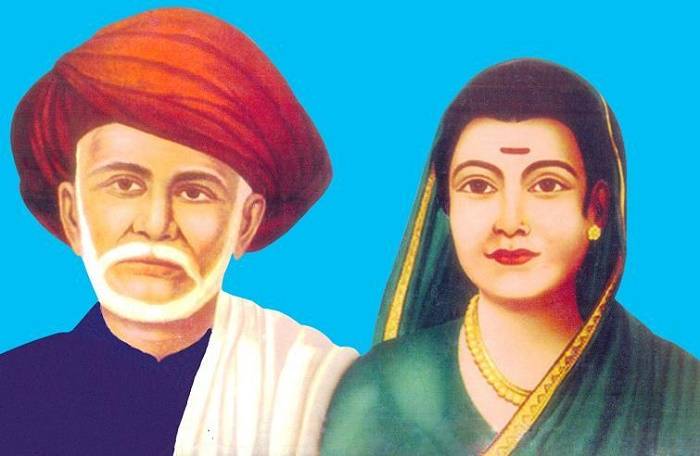
Efforts Towards Women Education
Jyotiba’s quest for providing women and girls with right to education
was supported by his wife Savitribai Phule. One of the few literate
women of the time, Savitribai was taught to read and write by her
husband Jyotirao.
In 1851, Jyotiba established a girls’ school and asked his wife to teach
the girls in the school. Later, he opened two more schools for the
girls and an indigenous school for the lower castes, especially for the
Mahars and Mangs.
Jyotiba realised the pathetic conditions of widows and established an
ashram for young widows and eventually became advocate of the idea of
Widow Remarriage.
Around his time, society was a patriarchal and the position of women was
especially abysmal. Female infanticide was a common
He occurrence and so was child marriage, with children sometimes being
married to men much older. These women often became widows before they
even hit puberty and were left without any family support. Jyotiba was
pained by their plight and established an orphanage in 1854 to shelter
these unfortunate souls from perishing at the society’s cruel hands.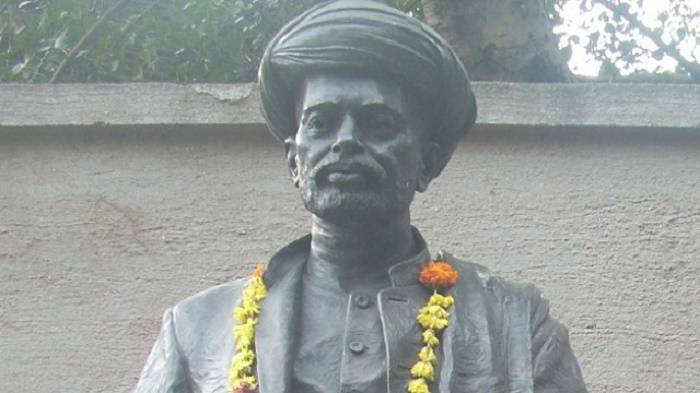
Efforts
Towards Elimination of Caste Discrimination
Jyotirao attacked the orthodox Brahmins and other upper castes and
termed them as “hypocrites”. He campaigned against the authoritarianism
of the upper caste people and urged the “peasants” and “proletariat” to
defy the restrictions imposed upon them.
He opened his home to people from all castes and backgrounds. He was a
believer in gender equality and he exemplified his beliefs by involving
his wife in all his social reform activities. He believed that religious
icons like Rama are implemented by the Brahmin as a means for
subjugating the lower caste.
The orthodox Brahmins of the society were furious at the activities of
Jyotirao. They blamed him for vitiating the norms and regulations of the
society. Many accused him of acting on behalf of the Christian
Missionaries. But Jyotirao was firm and decided to continue the
movement. Interestingly, Jyotirao was supported by some Brahmin friends
who extended their support to make the movement successful.
Satya Shodhak Samaj
In 1873, Jyotiba Phule formed the Satya Shodhak Samaj (Society of
Seekers of Truth). He undertook a systematic deconstruction of existing
beliefs and history, only to reconstruct an equality promoting version.
Jyotirao vehemently condemned the Vedas, the ancient holy scriptures of
the Hindus. He traced the history of Brahmanism through several other
ancient texts and held the Brahmins responsible for framing the
exploitative and inhuman laws in order to maintain their social
superiority by suppressing the “shudras” and “atishudras” in the
society. The purpose of the Satya Shodhak Samaj was to decontaminate the
society from caste discrimination and liberate the oppressed
lower-caste people from the stigmas inflicted by the Brahmins. Jyotirao
Phule was the first person to coin the term ‘SC/STs’ to apply to all
people considered lower caste and untouchables by the Brahmins.
Membership to the Samaj was open to all irrespective of caste and class.
Some written records suggest that they even welcomed participation of
Jews as members of the Samaj and by 1876 the ‘Satya Shodhak Samaj’
boasted of 316 members. In 1868, Jyotirao decided to construct a common
bathing tank outside his house to exhibit his embracing attitude towards
all human beings and wished to dine with everyone, regardless of their
caste.
Death
Jyotiba Phule devoted his entire life for the liberation of untouchables
from the exploitation of Brahmins. Apart from being a social activist
and reformer, he was also a businessman. He was also a cultivator and
contractor for the Municipal Corporation. He served as Commissioner of
the Poona Municipality between 1876 and 1883.
Jyotiba suffered a stroke in 1888 and was rendered paralyzed. On 28
November, 1890, the great social reformer, Mahatma Jyotirao Phule,
passed away. 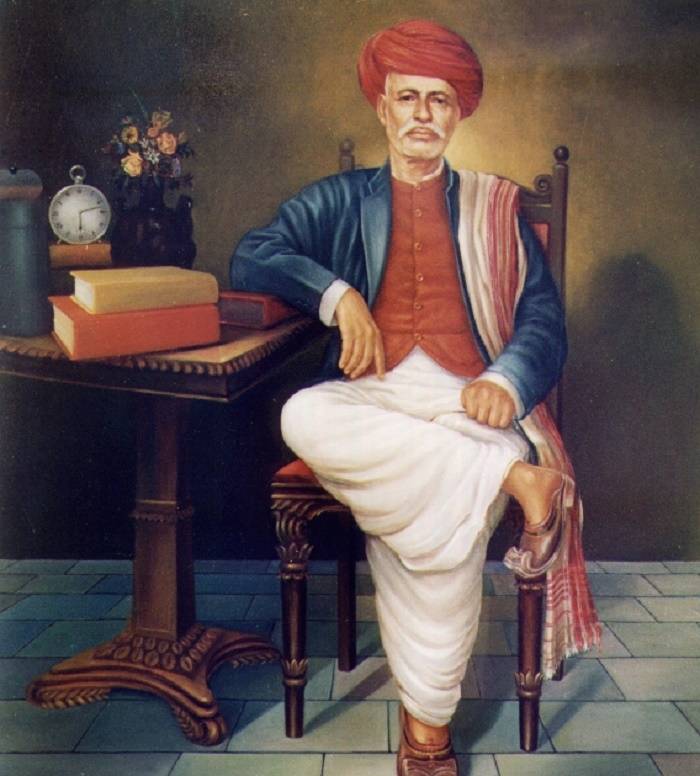
Legacy
Perhaps the biggest legacy of Mahatma Jyotirao Phule is the thought
behind his perpetual fight against social stigma that are enormously
relevant still. In the nineteenth century, people were used to accepting
these discriminatory practices as social norm that needed to be
enforced without question but Jyotiba sought to change this
discrimination based on caste, class and colour. He was the harbinger of
unheard ideas for social reforms. He started awareness campaigns that
ultimately inspired the likes of Dr. B.R. Ambedkar and Mahatma Gandhi,
stalwarts who undertook major initiatives against caste discrimination
later.
Commemoration
A biography of Jyotiba was penned by Dhananjay Keer in 1974 titled,
‘Mahatma Jyotibha Phule: Father of Our Social Revolution’. The Mahatma
Phule Museum in Pune was set-up in honour of the great reformer. The
Government of Maharashtra introduced the Mahatma Jyotiba Phule
Jeevandayeeni Yojana which is a cashless treatment scheme for poor. A
number of statues of the Mahatma have been erected as well as several
street names and educational institutes have been rechristened with his
name – eg. Crawford Market in Mumbai is rechristened as Mahatma Jyotiba
Phule Mandai and the Maharashtra Krishi Vidyapeeth at Rahuri, Maharshtra
was renamed Mahatma Phule Krishi Vidyapeeth.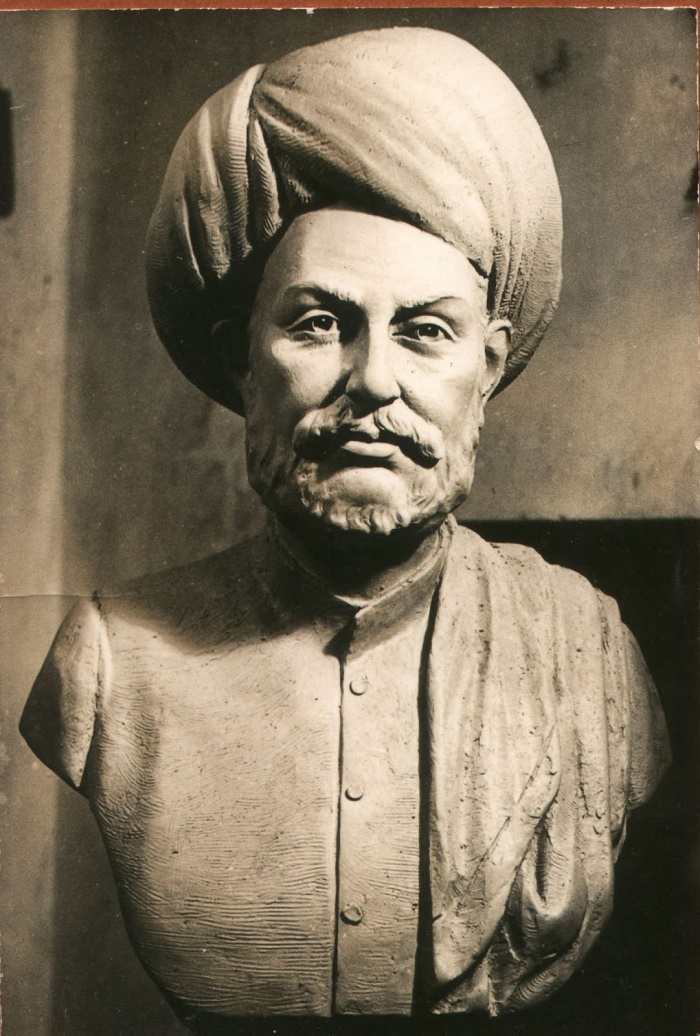
Lakshmi Gopinath Karnataka BSP Head Quarters In-Charge on
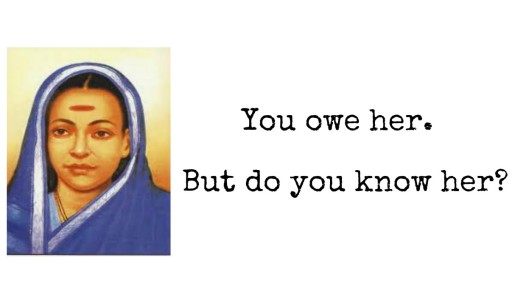
Who is Savitribai Phule?
What
did she do for women’s rights ?
Phule also worked to abolish discrimination and unfair treatment of
people based on caste and gender.
At a time when people hardly identified the grievances of women in
India, Savitribai Phule along with her husband stood up to fight the
injustice against women.
Savitribai Jyotirao Phule, born on 3 January 1831, was a social reformer
and poet. She played an important role in fighting for women’s rights
in India during British rule and is described as “one of the
first-generation modern Indian feminists”.
Phule along with her husband founded the first women’s school at Bhide
Wada in Pune in 1848.
The child bride who stood up against discrimination
Born into a family of farmers in Naigaon, Maharashtra, she was married
to 12-year-old Jyotirao Phule at the age of nine.
The practice of child marriage was prevalent in the 19th century and
since the mortality rate was high at the time, many young girls often
became widows even before attaining puberty.
Such widows used to shave their heads, wear a simple red sari and live a
life of austerity. It was Savitribai who decided to stand up against
this practice and organized a strike against the barbers in order to
persuade them to stop shaving the heads of the widow.
She noticed the plight of women who after falling prey to sexual
exploitation, and becoming pregnant, either committed suicide or killed
the newborn due to fear of banishment by the society. To cater to such
women she opened a care center for pregnant rape victims and helped
deliver their children.
The care center was called “Balhatya Pratibandhak Griha” (Infanticide
prohibition house).
Challenging the casteist patriarchy
Phule also worked to abolish discrimination and unfair treatment of
people based on caste and gender.
She found the treatment of the untouchables problematic and opened a
well in her house in 1868 so that, people who were refused drinking
water by the upper caste can use it.
She died while taking care of the patients suffering during the
worldwide Third Pandemic of the bubonic (bacterial infection) plague.
मुहीम से जुड़ें
Many more happy returns of day akka Mayawati




















